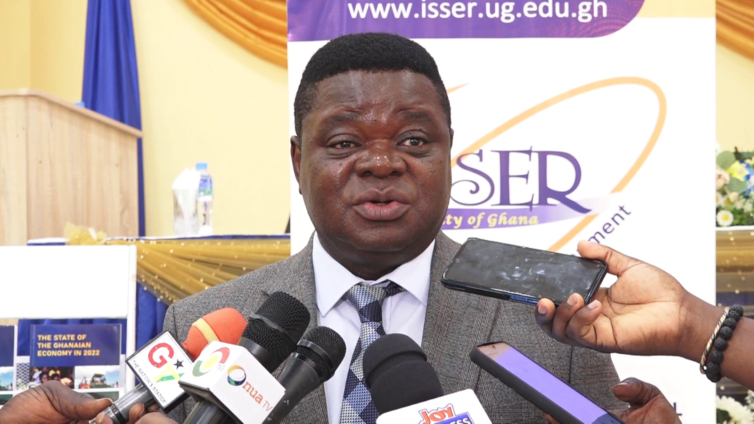The Institute of Statistical, Social and Economic Research (ISSER) at the University of Ghana has underscored the pivotal nature of the 2024 budget, presenting it as a test case for the nation's financial stability.
The review emphasises that prudent financial management will build upon the relative stability recorded in 2023.
Conversely, ISSER warns that excessive spending in the upcoming year could usher in dire consequences for the economy, impacting variables such as the exchange rate, inflation, and more.
With the majority of the 2024 budget allocated to public sector wages, debt payments, and statutory funds, ISSER's analysis raises concerns about the limited fiscal space available for crucial infrastructure development and service provision.
The allocation of over 90% of domestic revenue to these areas leaves less than 10% to cover essential components like capital expenditures and other government services.
Professor Quartey, the director at ISSER, has called for a careful examination of government spending, emphasizing the importance of value for money in major public procurement contracts.
He further advised the government to actively negotiate with external creditors to restructure debt payments, freeing up fiscal space for vital development projects and service enhancement.
As the 2024 budget projects a fiscal deficit of 4.8% of GDP, Professor Quartey remains optimistic, provided the government adheres to the targets set under the International Monetary Fund (IMF) program.
However, ISSER's warning about the consequences of excessive spending serves as a stark reminder that the decisions made in this crucial year will have lasting implications for the nation's economic stability.
The ISSER review positions 2024 as a decisive period, urging for prudent financial management to capitalize on the groundwork laid in 2023.
Conversely, it serves as a cautionary note, signalling that unbridled spending could lead to detrimental consequences, making it imperative for the government to strike a delicate balance between immediate financial obligations and the long-term economic health of the nation.
Latest Stories
-
GPL 2024/2025: Prince Owusu screamer earns Medeama win over Young Apsotles
37 seconds -
Burning old TVs to survive in Ghana: The toxic trade in e-waste
21 mins -
Perfume boss admitted he ignored Russia sanctions
35 mins -
Wicked proves popular as opening set to be biggest for Broadway film
41 mins -
Nominee for agriculture secretary completes Trump cabinet
53 mins -
ECG urges prepaid customers to top up to last one month ahead of system upgrade
1 hour -
Three more tourists named in Laos methanol deaths
2 hours -
Betway Africa offers a once-in-a-lifetime ‘Play-on-the-Pitch’ experience at Emirates Stadium
2 hours -
The rise and fall of Matt Gaetz in 8 wild days
2 hours -
School Feeding Programme: Bono East NIB seizes smuggled rice, arrest driver
2 hours -
Dr. Razak Opoku: Despite challenges, facts and data still prove NPP is better manager of the economy than NDC
2 hours -
Seidu Agongo: On December 7, it must be peace over power
2 hours -
2024 Election will take place on December 7; ignore misleading claims – EC
2 hours -
GPL 2024/25: Asante Kotoko bounce back with win over Aduana FC
3 hours -
GPL 2024/25: Gold Stars beat Vision FC to retain top spot
3 hours

